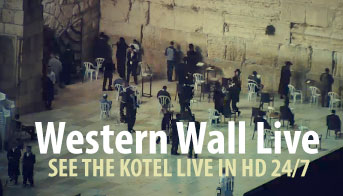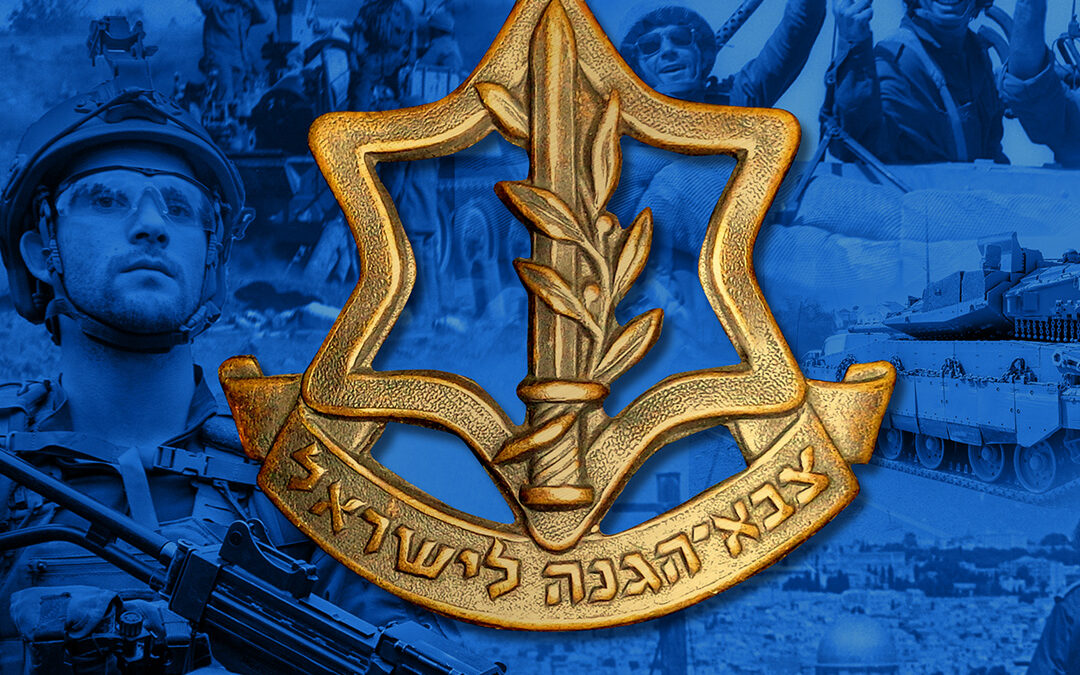
by Dr. Mike Evans | Feb 9, 2024 | Articles
Since the miracle rebirth of the Jewish state in 1948, the nation has been fighting to survive. The first war started on the day independence was declared, and it has been raging off and on for more than 75 years now. Throughout that time, the Israel Defense Forces have been the shield of the nation. They have fought with courage and tenacity, often outnumbered by their enemies, and won victory after victory. Today the IDF is regarded as one of the premiere military forces in the entire world. But they have been sorely tested by the current war, both in its length and scope.
The Israeli cabinet ratified the name “Israel Defense Forces”  , Tzva HaHagana LeYisra’el, which means “army for the defense of Israel,” on 26 May 1948. The Ground Forces, Air Force and Navy branches currently have about 170,000 active duty troops. In addition, there are more than 450,000 reservists, many of whom have been activated during the current war because of the scale of the operation required.
, Tzva HaHagana LeYisra’el, which means “army for the defense of Israel,” on 26 May 1948. The Ground Forces, Air Force and Navy branches currently have about 170,000 active duty troops. In addition, there are more than 450,000 reservists, many of whom have been activated during the current war because of the scale of the operation required.
Current Israeli law requires military service for most Israeli citizens when they turn 18, though there are exceptions made for Arab citizens, Orthodox Jews, and others. Normal terms of service for young men are 32 months, although some specialized roles require a 36-month commitment. Normal terms for young women are 24 months, although again, certain positions come with a 36-month commitment. After completing their full time service, those who do not select a permanent military career become part of the reserve, subject to recall in times of crisis or war.
The IDF was forged in the fires of war. Again and again, the men and women of Israel have risked and given their lives. And it is still happening today.

Since the rebirth of Israel, Christian friends from around the world have been a vital part of Israel’s defense. Here is a look at some of the ways these Christian Zionists made a difference, helping to shape the IDF and ensure the fledgling Jewish state would survive…
Orde Charles Wingate 1903-1944
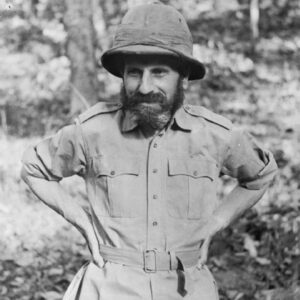
Major Orde Charles Wingate was a British officer who played a prominent role during World War II. Known for his unorthodox and innovative military tactics, Wingate’s leadership and unconventional approach left a lasting impact on the war effort, particularly in the campaigns in Burma (now Myanmar).
Wingate was born on February 26, 1903, in Naini Tal, India, to a military family. His father, Colonel George Wingate, served in the British Army. From an early age, Wingate was exposed to the military lifestyle and developed a keen interest in adventure and exploration. In 1921, Wingate joined the Royal Military Academy at Woolwich, where he received formal military training. He showed exceptional talent and was commissioned as a second lieutenant in the British Army’s Royal Artillery in 1923. During his military career, Wingate served in various assignments in Sudan, Palestine, and other parts of the Middle East. It was in Palestine that Wingate’s unique approach to warfare and unconventional tactics began to emerge. He developed a deep admiration for the Jewish community and their struggle for statehood. Wingate recognized the need for specialized military units to combat guerilla warfare and insurgency, and he formed close relationships with Jewish underground organizations, such as the Haganah.
The Haganah was a Jewish paramilitary organization that played a crucial role in the establishment and defense of the State of Israel. Formed in the early 1920s, the Haganah operated under the British Mandate for Palestine and evolved into the primary defense force of the Jewish community during a period of political unrest and Arab-Jewish tensions. The roots of the Haganah can be traced back to the early Zionist settlements in Palestine.
As Jewish communities grew, they faced increasing hostility from Arab nationalists and sporadic violence. In response, Jewish residents organized self-defense groups to protect their communities and counter Arab attacks. These groups eventually merged to form the Haganah, which means “defense” in Hebrew. In its early years, the Haganah focused on training and preparedness, with an emphasis on developing military capabilities and intelligence networks. It operated quietly to evade the scrutiny of the British authorities who viewed Jewish military activities with suspicion. Wingate would soon adopt some of the group’s practices in his own efforts. Wingate’s ideas were met with skepticism by some within the military establishment, but he continued to develop and refine his strategies. In 1936, Wingate was assigned to lead the Special Night Squads. The Special Night Squads were a British military unit formed in Palestine during the Arab Revolt in the late 1930s. Led by Major Wingate, the squads were created to counter Arab attacks on Jewish settlements and to protect British interests in the region.
Palestinian Arabs felt increasingly marginalized as Jewish immigration surged, leading to tensions over land ownership and economic opportunities, along with antisemitic violence. The British administration’s perceived bias towards Jewish interests and their restrictions on Arab political activities further fueled discontent among the Arab population. The revolt began on April 19, 1936, with a general strike that paralyzed major cities and towns throughout Palestine. Arab workers, students, and merchants refused to go to work or attend British-run schools, demanding an end to Jewish immigration and land sales to Jews. The strike quickly escalated into violent confrontations between Arab demonstrators and British security forces.
The Arab Higher Committee (AHC), led by Haj Amin al-Husseini, emerged as the political leadership of the revolt. The AHC called for the boycott of British institutions and Jewish businesses, as well as the formation of local defense committees to confront the British authorities and Jewish settlements. The revolt spread across Palestine, with attacks on British police stations, railways, and Jewish settlements becoming more frequent. In response, the British formed the Special Night Squads as a specialized force to counter these attacks. The squads were composed of British soldiers, Jewish volunteers, and members of the Jewish settlement police.
Under Wingate’s leadership, the Special Night Squads conducted relentless hit-and-run operations against Arab guerrillas. They would patrol the countryside at night, ambushing Arab attackers, destroying their bases, and gathering intelligence on their movements. The squads often used small teams armed with machine guns, grenades, and explosives to carry out their operations swiftly and effectively. Wingate’s tactics emphasized mobility, surprise, and aggressive action. He recognized the importance of intelligence gathering and conducted thorough reconnaissance to stay one step ahead of the enemy. The Special Night Squads used their knowledge of the terrain and their ability to strike swiftly to gain a tactical advantage.
The Special Night Squads served as a precursor to Wingate’s later endeavors during World War II, particularly his leadership of the Chindits in Burma. The Chindits were a specialized British guerrilla force that operated in Burma (now Myanmar) during World War II. Led by Major General Orde Wingate, the Chindits conducted long-range penetration operations behind enemy lines, engaging in sabotage, disruption, and harassment of Japanese forces. Their unconventional tactics and ability to operate deep in enemy territory made them a unique and formidable force in the Burma campaign.
Tragically, Wingate’s life was cut short during the war. On March 24, 1944, Wingate was flying in a U.S. Army Air Forces B-25 Mitchell bomber aircraft with a crew of four and several passengers, including American liaison officers and British staff members. Unfortunately, as it returned from a successful operation, the plane encountered severe weather conditions, including thick fog and heavy rain. The aircraft, named “Hotspur,” struck a mountainside in the region of Manipur, India, near the India-Burma border. It is believed the poor visibility and unfavorable flying conditions contributed to the crash. The crash resulted in the loss of all passengers and crew on board, including Wingate.
In May 1948, as Arab armies threatened the newly formed State of Israel with extinction, Wingate’s wife, Lorna, and their son Orde Jonathan boarded a small plane to fly over the Israeli settlement Yemin Orde, named after their late husband and father. At the moment the plane entered the airspace over the village, a large group of Syrians attacked. In her hand, Lorna held her husband’s Bible— the one that had accompanied him on all his travels and assignments. On its flyleaf, she wrote:
7 May ’48. To the defenders of Yemin Orde: Since Orde Wingate is with you in spirit, though he cannot lead you in the flesh, I send you the Bible he carried in all his campaigns and from which he drew inspiration of his victories. May it be a covenant between you and him, in triumph or defeat, now and always.
After signing her name, Lorna Wingate flung the Bible from the window of the small plane. Retrieved by an Israeli fighter, it inspired men in the ditches below to repel their attackers. Wingate was one of the mighty men of Israel, and his deeds are woven through the history of the rebirth of that nation. In 1958, Lorna and her two children were invited to the residence of the Israeli Ambassador to the Court of St. James. The leaders of the fledgling nation wished to pay tribute to her husband for his support during the fight for independence by posthumously awarding him the Defense Medallion. Jonathan Wingate, their eldest child, was presented with the Medallion in the name of his father, Orde Charles Wingate.
He recognized the potential of a Jewish state and actively advocated for Jewish settlement and defense against Arab attacks.
John Henry Patterson 1867-1947
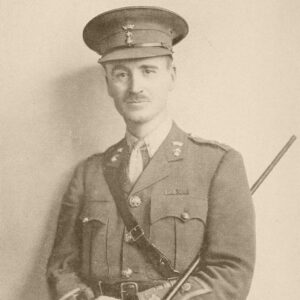
John Henry Patterson was a British Army officer and colonial administrator who played a significant role in various military campaigns and colonial activities during the late 19th and early 20th centuries. He is best known for his leadership and involvement in the construction of the Uganda Railway and his efforts in leading the Tsavo Man-Eaters incident.
Patterson was born on November 10, 1867, in Forgney, County Westmeath, Ireland. Raised in a family with a strong military tradition, Patterson’s early life was shaped by a sense of duty, discipline, and a desire for adventure. Patterson received his early education at King William’s College on the Isle of Man, where he excelled academically and displayed leadership qualities. Following his schooling, he embarked on a military career by enrolling at the Royal Military Academy in Sandhurst, England. There, he underwent rigorous training, honing his skills in various aspects of military tactics and strategy.
After graduating from Sandhurst, Patterson was commissioned as a second lieutenant in the British Army. His early assignments included postings in Ireland and Egypt, where he gained practical experience and demonstrated his abilities as a capable and resourceful officer. Patterson’s first major opportunity to showcase his leadership came during the construction of the Uganda Railway in East Africa.
He was selected to oversee the challenging task of building a railway line that would connect the interior of East Africa with the Indian Ocean. This ambitious project involved navigating hostile terrain, combating diseases, and managing a large labor force comprising African workers and Indian immigrants. Patterson’s strong organizational skills, innovative thinking, and ability to adapt to difficult circumstances were instrumental in the successful completion of the railway.
During his time in Africa, Patterson encountered one of the most memorable challenges of his career—the infamous Tsavo Man-Eaters. These were a pair of notorious maneless male lions that terrorized railway workers in Tsavo, Kenya, during the construction of the Uganda Railway. The attacks by the Tsavo lions occurred between March and December 1898 when the railway workers were constructing a bridge over the Tsavo River. The lions were estimated to have killed as many as 135 people, although the exact number remains uncertain. The man-eating lions were characterized by their unusually large size and lack of manes, a rare trait in male lions. After several failed attempts, Patterson managed to kill both lions. The skulls and skins of the Tsavo lions were eventually acquired by the Field Museum of Natural History in Chicago, where they remain on display.
Patterson’s military career extended beyond Africa. He served in the First World War, where he commanded a battalion of the Jewish Legion, a unit comprised of Jewish volunteers. The Jewish Legion, also known as the Zion Mule Corps, was a military unit formed during World War I as part of the British Army. It was composed primarily of Jewish volunteers from various parts of the world who were committed to the Zionist cause and sought to establish a Jewish homeland in Palestine.
The idea of creating a Jewish fighting force was initially proposed by Ze’ev Jabotinsky, a prominent Zionist leader, in 1914. Jabotinsky believed that Jews should establish their own state and actively fought against anti-Semitism and discrimination. In response to violent anti-Jewish pogroms in Russia, Jabotinsky established the Jewish Self-Defense Organization in 1903. He believed that Jews needed to be able to protect themselves physically and advocated for the establishment of a Jewish fighting force.
In 1917, the British War Office approved the formation of the Jewish Legion. The unit consisted of three battalions, with a total strength of approximately 5,000 soldiers. The volunteers hailed from various backgrounds, including Palestine, Russia, America, Canada, and other parts of the British Empire. The Jewish Legion was involved in several military campaigns during World War I. Its first significant engagement was in the Sinai and Palestine Campaign, where the unit fought against the Ottoman Empire. The Legion participated in the Battle of Gallipoli, the Battle of Megiddo, and various other operations in the region. Their efforts played a crucial role in the British victory and the eventual collapse of the Ottoman Empire in the Middle East.
The formation of the Jewish Legion was significant for several reasons. First, it was a tangible representation of Jewish military power and the desire for self determination. Second, it allowed Jews from different backgrounds to unite under a common cause and fight for their own interests. The Jewish Legion also had a profound impact on Jewish identity and self-perception. It provided a sense of pride and empowerment for Jewish soldiers who were able to serve under their own flag and fight for their own homeland. The experience of serving in the Legion fostered a strong sense of camaraderie and solidarity among its members.
Furthermore, the Jewish Legion played a diplomatic role in advancing the Zionist cause. Its existence demonstrated to the international community that Jews were willing and capable of defending their rights and homeland. The Legion’s efforts helped garner support for the establishment of a Jewish state in Palestine, as it showcased Jewish military capability and commitment. After World War I, the Jewish Legion was disbanded, but its legacy lived on. Many of its former members went on to become influential figures in the Zionist movement and played pivotal roles in the establishment of the State of Israel in 1948. The Jewish Legion paved the way for subsequent Jewish defense organizations, such as the Haganah, which eventually evolved into the Israel Defense Forces (IDF).
Patterson was a staunch supporter of Zionism and played a pivotal role in advocating for the establishment of a Jewish homeland in Palestine. His efforts earned him the respect and admiration of the Jewish community. Throughout his life, Patterson displayed a deep sense of adventure, dedication to duty, and a passion for exploration. He wrote several books, including his memoir “The Man-Eaters of Tsavo” and “With the Zionists in Gallipoli,” where he documented his experiences and shared his perspectives on the events he witnessed. “With the Zionists in Gallipoli” recounted his experiences leading the Zion Mule Corps during World War I. The book provided a firsthand account of the Zion Mule Corps’ involvement in the Gallipoli Campaign and shed light on the aspirations and challenges faced by the Jewish volunteers who fought under Patterson’s command.
After retiring from the military, Patterson settled in California, where he spent his final years. He continued to be involved in Zionist activities and advocacy for the establishment of a Jewish homeland in Palestine. In 1946, Patterson suffered a stroke that left him partially paralyzed and confined to a wheelchair. Despite his health condition, he remained dedicated to his cause and continued to support the Zionist movement.
On June 18, 1947, Patterson passed away at his home in California at the age of 75. Patterson felt he had a front-row seat to the fulfillment of prophetic scriptures and promises from God. Although he died almost a year before his vision for the rebirth of Israel was fulfilled on May 14, 1948. Patterson’s funeral was held in California, and his body was later transported to Israel, where he had expressed his desire to be buried. His funeral in Israel was attended by prominent figures and dignitaries, including David Ben-Gurion, who would later become the first Prime Minister of Israel.
In accordance with his wishes, Patterson was buried in the military cemetery on Mount Zion in Jerusalem. The funeral ceremony for Patterson was attended by British military personnel, Zionist leaders, and members of the Jewish community. The event represented the bond between Patterson, the Zionist cause, and the emerging Jewish state. Patterson’s burial was conducted with full military honors, paying tribute to his military service and his contributions to the Zionist movement. The ceremony included gun salutes, military processions, and the presence of high-ranking officials. During the burial, symbolic gestures were made to honor Patterson’s commitment to the Jewish cause. The Israeli flag was draped over his casket, and Jewish religious customs were observed.
Show Your Support By Giving Now
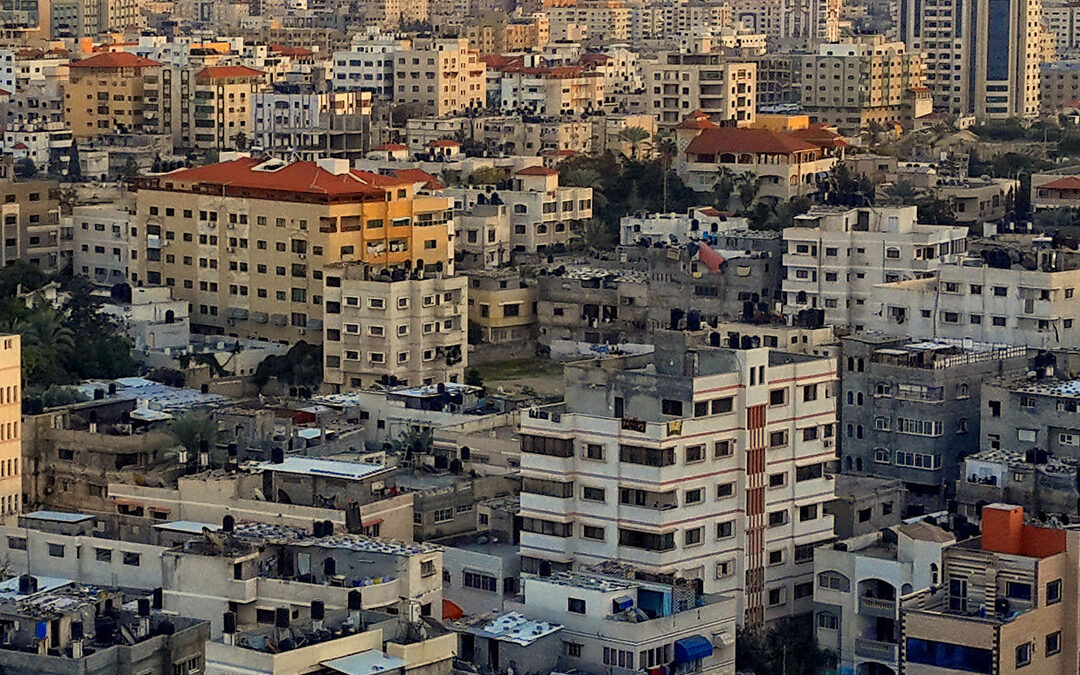
by Dr. Mike Evans | Jan 26, 2024 | Articles
Gaza plays a key role in the story of the nation of Israel in the Word of God. Gaza was home to the Amalekites. They were the ones who attacked Israel after they came out of Egypt when they went into the Promised Land. It was against the Amalekites from Gaza that Moses battled when his hands were weary and he had Aaron and Hur hold his hands up as he prayed.
In response to their attack on Israel, God decreed the utter destruction of Amalek. After the victory, the LORD instructed Moses, “Write this down on a scroll as a permanent reminder, and read it aloud to Joshua: I will erase the memory of Amalek from under heaven.” Moses built an altar there and named it Yahweh-Nissi (which means “the LORD is my banner”). He said, “They have raised their fist against the LORD’s throne, so now the LORD will be at war with Amalek generation after generation” (Exodus 17:14-16).
The Philistines were a constant source of conflict for Israel. Gaza was one of their five main cities, and its seaport was a source of great wealth. Gaza is mentioned in the prophecies of Jeremiah, Amos, Zephaniah, and Zachariah in connection with future judgment. (Amos 1:6-7, Jeremiah 25:17-20, Zephaniah 2:4, and Zachariah 9:5.) Amos recorded God’s decree, “I will send a fire upon the walls of Gaza. It shall devour her strongholds.” Despite what many enemies of Israel say and what is often reported in the liberal media, Gaza was never part of a Palestinian state…because there never has been one. The land was conquered, divided, fought over, and conquered again and again through the centuries. The British defeat of the Ottoman Empire during World War I gave them control of the region, and they maintained it until Israel’s independence in 1948. There was a state established for Palestinians, the kingdom of Jordan.
Jordan has more Palestinian refugees than Gaza and the West Bank together. But no Arab country wants the Palestinians. Syria, Lebanon, Jordan, Egypt, nor any of the Gulf states are welcoming refugees. In fact, many of them have massacred the Palestinians. The Kuwaitis massacred them during the Persian Gulf War in Kuwait.
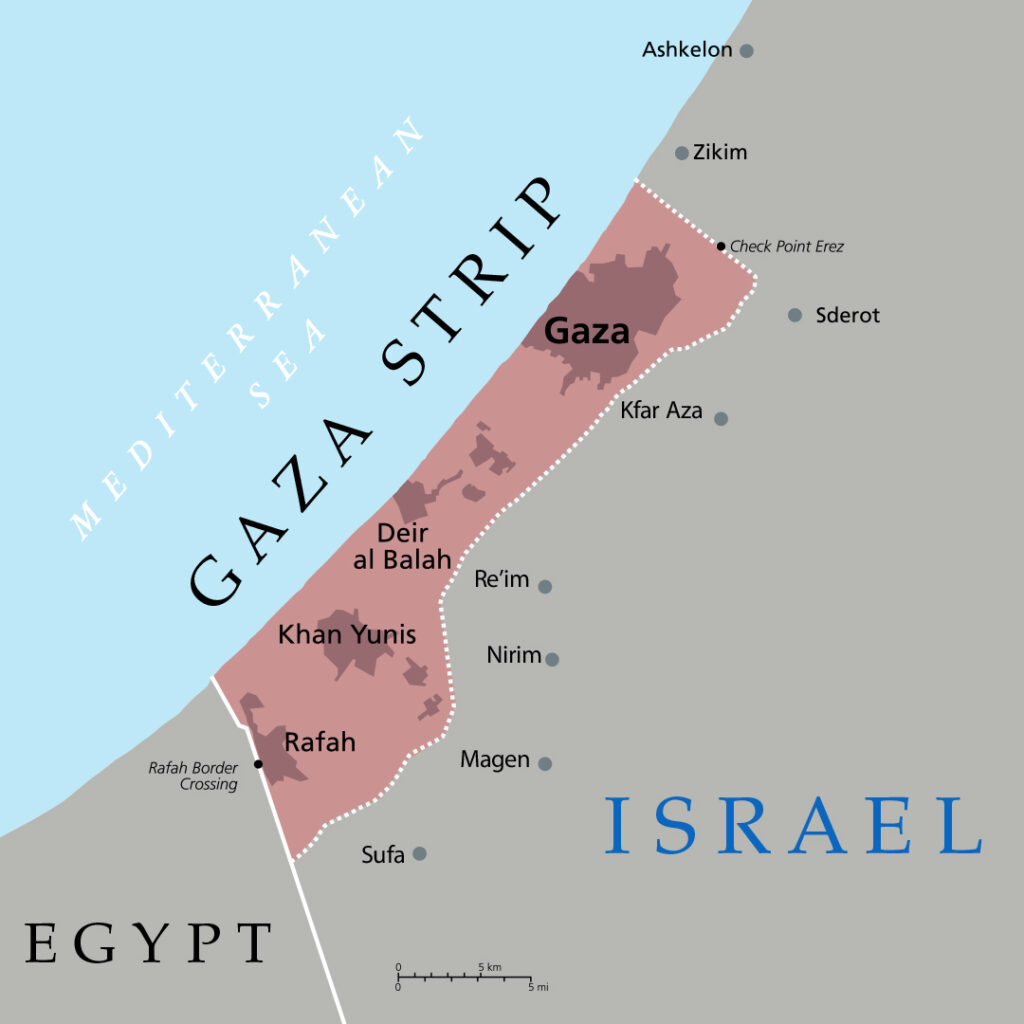
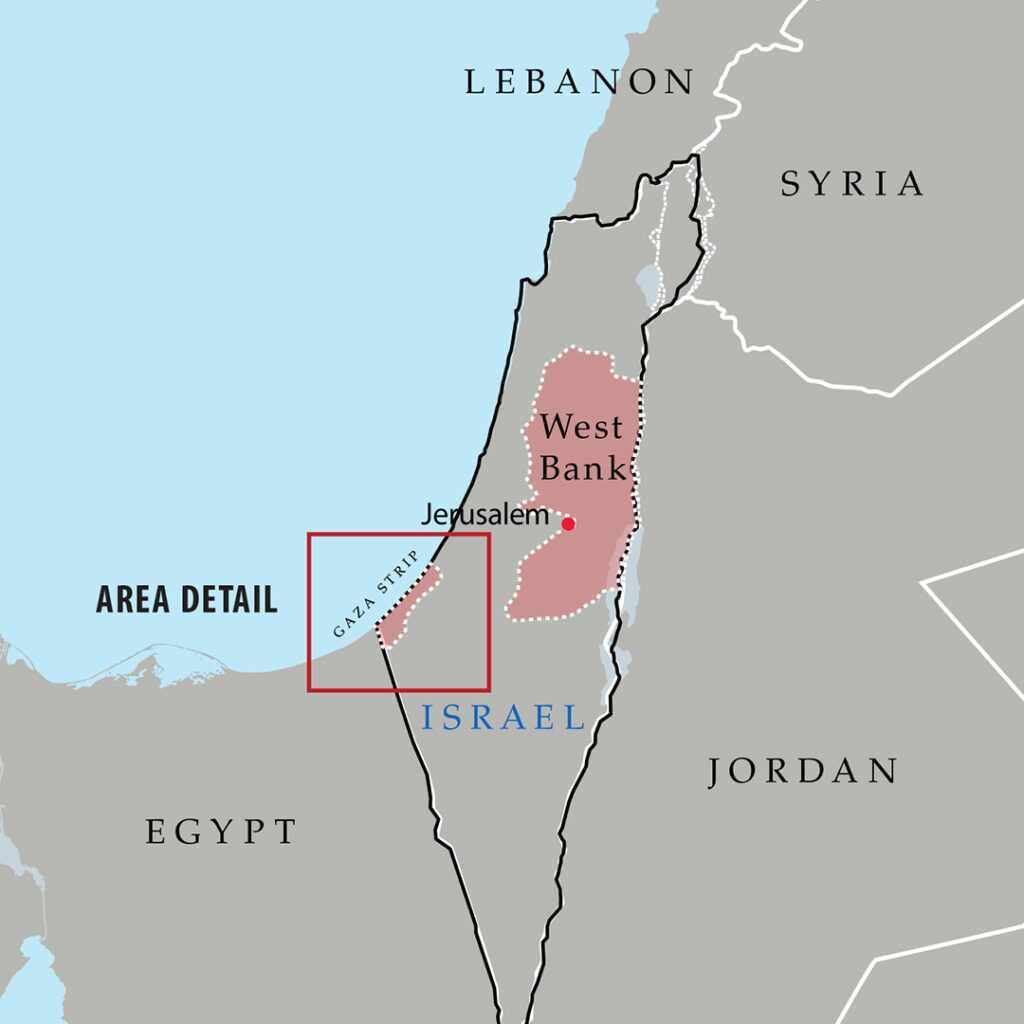
The People of Gaza
President Biden said the Palestinians do not support Hamas. That is sadly not true. When the elections were held in 2006 in Gaza, Hamas won 56% of the seats as opposed to Fatah’s 34%. After the war started, King Abdullah of Jordan and President el-Sisi of Egypt, both men I know personally, refused to allow them into their countries. One thing is for certain, the vast majority of Palestinians in Gaza hate Jews as much as Hitler did.
President Biden said the Palestinians do not support Hamas. That is sadly not true. When the elections were held in 2006 in Gaza, Hamas won 56% of the seats as opposed to Fatah’s 34%. After the war started, King Abdullah of Jordan and President el-Sisi of Egypt, both men I know personally, refused to allow them into their countries. One thing is for certain, the vast majority of Palestinians in Gaza hate Jews as much as Hitler did.
In contrast, the 500,000 Palestinian refugees were denied any place to go. The Arab states refused to absorb them because they wanted to use them as a pawn to orchestrate world public opinion against Israel. So, Jordan, the nation that controlled the West Bank from 1948 to 1967, herded them into horrible refugee camps and let them live like rats.
500,000 Palestinian refugees were denied any place to go. The Arab states refused to absorb them because they wanted to use them as a pawn to orchestrate world public opinion against Israel. So, Jordan, the nation that controlled the West Bank from 1948 to 1967, herded them into horrible refugee camps and let them live like rats.
The call for a Palestinian state is nonsense. Israel is one of the smallest nations in the world, smaller than Kuwait (about the size of New Jersey). It has no land to give away. If the West Bank were to be given to the Palestinians, Israel would be only 9 miles wide at a spot directly above Tel Aviv. No nation in the world would give such land to its sworn enemy.
And for the nations of the world to demand that Israel do so is pure hypocrisy of the first order. A Palestinian state already exists. It is called Jordan. It constitutes two-thirds of the land that has been historically referred to as Palestine. There is no need for another Palestinian state. There are 22 Arab states and only one tiny Jewish state.
Why must another Arab state be carved out of the heart of Israel? Only because the world hates the Jews. Another point to keep in mind is that there has never been a Palestinian state in all of history. From the fall of Israel in 70 AD to the present, the area dubbed “Palestine” by the Romans (to insult the Jews, since Palestine in Latin means Philistine) has been a part of greater Syria, and all the Arabs who lived there looked upon themselves as Syrians. There was never a Palestinian state, nor was Jerusalem ever the capital city of any Arab entity. The land and the city are Jewish.
The Problem with Palestinians:
The Palestine Liberation Organization
After the October 1973 defeat in the military war between Arab countries and Israel, Yasser Arafat opted to take a different approach to destroying Israel: The despot decided to become a diplomat. With the use of smoke and mirrors and sleight of hand, the newly made-over terrorist managed to create the illusion of civility and legitimacy. With dogged determination, he gained acceptance as the leader of the PLO pack. His transformation obviously did not deflect his determination to destroy Israel in whatever way he deemed appropriate. Arafat and his Palestine Liberation Organization, as well as other self-styled terrorist groups, failed to bolster the position of the Palestinian people by continuing attacks against the Israelis at home and abroad.
In 1978 alone:
- February 1978: A bomb planted on a bus filled to capacity exploded in Jerusalem; two were murdered, forty-six injured.
- March 11, 1978: A Fatah terrorist murdered Gail Rubin, niece of U.S. Senator Abraham Ribicoff, on a Tel Aviv beach.
- March 11, 1978: PLO terrorists seized a bus on the coastal road, killing thirty-five men, women, and children.
- March 17, 1978: PLO terrorists launched Katuysha rockets on the Western Galilee, killing two and wounding two.
- June 2, 1978: A PLO terrorist bombed a Jerusalem bus, killing six and wounding nineteen
- August 20, 1978: PLO terrorists attacked Israel’s El Al airlines crew members in London airport, killing a stewardess and wounding eight.
- December 21, 1978: PLO terrorists launched a Katuysha rocket, killing one and wounding ten in Kiryat Shmona.
The PLO established a base of operations in Jordan, where they posed a threat—not just to Israel, but to the Hashemite kingdom. King Hussein of Jordan unleashed the Bedouin Arab Legion in a full-scale operation against the PLO. Tanks demolished every building in Amman from which gunfire erupted. Before Hussein had regained control, an estimated 3,000 Palestinian terrorists had been killed. PLO power in Jordan had been broken.
As the king’s troops battled the PLO, Syria intervened, sending forces across Jordan’s border. The Syrians greatly outnumbered Jordan in both tanks and aircraft, and when the king realized his predicament, requested that “the United States and Great Britain intervene in the war in Jordan.” He asked the United States, in fact, to attack Syria. Some transcripts of diplomatic communiqués show that Hussein actually requested Israeli intervention against Syria, “Please help us in any way possible.”
Israel and the United States mobilized forces, giving notice to Syria that if a full-scale invasion were launched Syria would encounter more than Jordanian troops. It worked. Syria retreated, and the Jordanians were able to drive the Palestinians out. From Jordan, the PLO moved to Lebanon, the only Arab nation with a significant Christian (Syrian Orthodox and Catholic) population. When the French pulled out of Syria and Lebanon in 1946, the Christian majority in Lebanon worked out a delicately balanced arrangement with the Muslim minority under a democratic constitution.
Under that new governance Beirut became a bustling and prosperous commercial center. At that time, its citizens enjoyed the highest per capita income in the Middle East. After Israel had become a state in 1948, several thousand Palestinian Arabs were admitted to Lebanon—not more, lest the Christian–Muslim balance of population shift disastrously. Disturbing the balance was always a matter of grave concern to the Christians who stood to lose the most.
The Palestinians, however, did disturb the balance in Lebanon—far out of proportion to their actual numbers. PLO agents worked actively inside refugee camps to establish bases from which to launch terrorist attacks on Israel. The Lebanese government was faced with a serious dilemma: If the PLO were driven out, it would anger the Muslim population; to let them stay would enrage Lebanese Christians. The prime minister began a delicate tightrope walk—he denied the existence of the PLO in public while covertly negotiating with Arafat to limit raids on Israel. His aim was to not provoke Israeli retaliation against PLO terrorists entrenched in Lebanon. The arrangement worked only briefly.
The PLO in Lebanon commandeered an Israeli El Al airliner. Israel responded by dispatching fighter jets to Beirut’s airport to destroy Arab aircraft on the ground. While the Lebanese government was knocked off-balance, its Muslim neighbors pressed for the right of the PLO to supervise and police refugee camps in southern Lebanon. Additionally, PLO terrorists imprisoned for subversive activities were released from Lebanese prisons. The result: burgeoning terror activities inside Lebanon. Israel would eventually drive Arafat and the PLO out of Lebanon in 1982, but it required another costly war to do so…and the threat this man, who was for so long the very face of terrorism, was not gone for good—Arafat would return.
Today his heirs continue the fight for Israel’s destruction. And the world continues to ignore their clearly stated goal of seeing the Jewish state wiped off the map. Sadly, many times employees of world bodies like the
UNRWA (United Nations Relief and Works Agency) are openly supporting and even helping the terrorists.
A search of social media revealed that Mahmoud Abu Adhm, an UNRWA employee in Gaza, posted numerous pro-Hamas messages in support of the October 7 atrocities. On October 10, he encouraged Hamas to murder Israeli hostages, stating, “Do not walk past a captive who has not been given amnesty without striking off his neck so as to terrorize the enemy.” He cited Islamic texts that promote cruelty toward the enemy.
Another man named Afaf Talab, a teacher who the IMPACT-se report says is employed by UNRWA, shared on his Facebook page a video in which the Hamas massacre is termed the “first real victory” on the way to liberating all Palestinians. The “liberation” of Palestinians is commonly used by terrorists and left- and right-wing extremists to mean expunging Israel from the map. The video posted by Talab praised the destruction of Israeli communities “with1,000 men in 3 hours” causing “entire cities emptied out in one night.” He called on October 23 for God to “destroy the Jews.” According to IMPACT-se, “This sentence in the Facebook post was deliberately misspelled, perhaps to avoid detection through automated translation given [his] role as a U.N. employee.”
Show Your Support By Giving Now

by Dr. Mike Evans | Jan 12, 2024 | Articles
On October 7, the worst terrorist attack of the 21st century took place as 3,000 Iranian-funded Hamas terrorists massacred innocent civilians, beheading them, burning them alive, dismembering them, and raping them.
You would have thought the entire world would rally in a much greater way as they beheld the unspeakable pictures of 1,400 dead Israelis, 242 taken hostages, including 30 babies, and more than 4,000 wounded. Instead, the media of the world took the bait as the architects of the slaughter, Hamas, poured propaganda 24/7, claiming that Israel was killing innocent lives.
Students at universities all over the globe began protesting not the massacre of Jews but the war against Hamas. No matter what Hamas said, they reported it as truth. Hamas stated at one time that 10,000 innocent civilians had been killed, as if Israelis were hunting down innocent civilians to kill them like Hamas did.
The truth is Hamas was lying. It was pure propaganda, and the media bought it, fueling antisemitism and terror. Those Hamas videos were free commercials for the Iranian proxy to raise funds from throughout the world—and they did.
Speaking of raising funds, every murderer was promised $10,000 if they could document they had killed a Jew and a new house if they brought back Jewish hostages. I listened to the voice recording of an Arab man at the site of one of the massacres in which he was screaming, “I killed 10 Jews with my own hands,” to his mother and father. “I’m a hero,” he said.
So how many of those 10,000 are innocent civilians? Number one, I doubt the number was even as high as 2,000. And let’s talk about that 2,000. Who are the innocent civilians that Israel has killed? I guarantee you that out of the 2,000, 1,000 of them are terrorists. Hamas doesn’t consider a terrorist to be a terrorist. He’s an innocent civilian, a freedom fighter doing his duty, trying to wipe all Jews off the planet. Just a little Hitler on steroids.
So now we’re down to around 1,000 innocent civilians. You can be sure out of that 1,000 that at least half of them are Hamas operatives who were helping build the tunnels, getting fuel and food to the terrorists, manning the Internet spreading lies, and trying to identify Israeli targets so that Hamas can kill more Jews.
So then we’re down to 500 innocent civilians, not 10,000. And who are those 500? Those 500 are Hamas supporters who refused to move out of Northern Gaza, even though Israel had asked them more than 100 times in 30 days to go south. And why aren’t they leaving? Because they are family members of the terrorists or friends. They are people who celebrate 100% what the terrorists did and want it to happen again and again and again.
You won’t hear any of this in the media. A former chief of staff told me once in the White House when I asked him how are wars started, and how do they end. He said the media decides that. The media decides when we start a war, and we end a war because they influence public opinion.
Israel has a secret weapon. That weapon is they have no place to go. Because of the media’s liberal left godless obsession, antisemitism is surging beyond anything I’ve seen in my lifetime. And it could get a lot of Jews killed throughout the world. It’s called, “Don’t confuse me with the facts. My mind is made up. Don’t distort my reality.”
I was at the home of Benjamin Netanyahu on the 4th of July 1980 when he was grieving the death of his brother Yoni, the leader of the Entebbe raid to Uganda to save Jewish lives. Every day, young Israelis like Yoni are giving their lives saving Jewish lives because they know Hamas has the goal to annihilate all the Jews. Hamas would be delighted to have 100 October 7ths in fulfilling the covenant of the Hamas Charter, which says the Day of Judgment will not come until Muslims fight Jews and kill them. Then the Jews will hide behind rocks and trees and the rocks and trees will cry out, “Oh Muslim, there is a Jew hiding behind me. Come and kill him” (Article Seven).
But as bad as the physical war is and as great a threat as it poses, that is not the only battle Israel is facing. There is also a battle going on in the unseen realm—a battle you and I must do our part to fight and win.
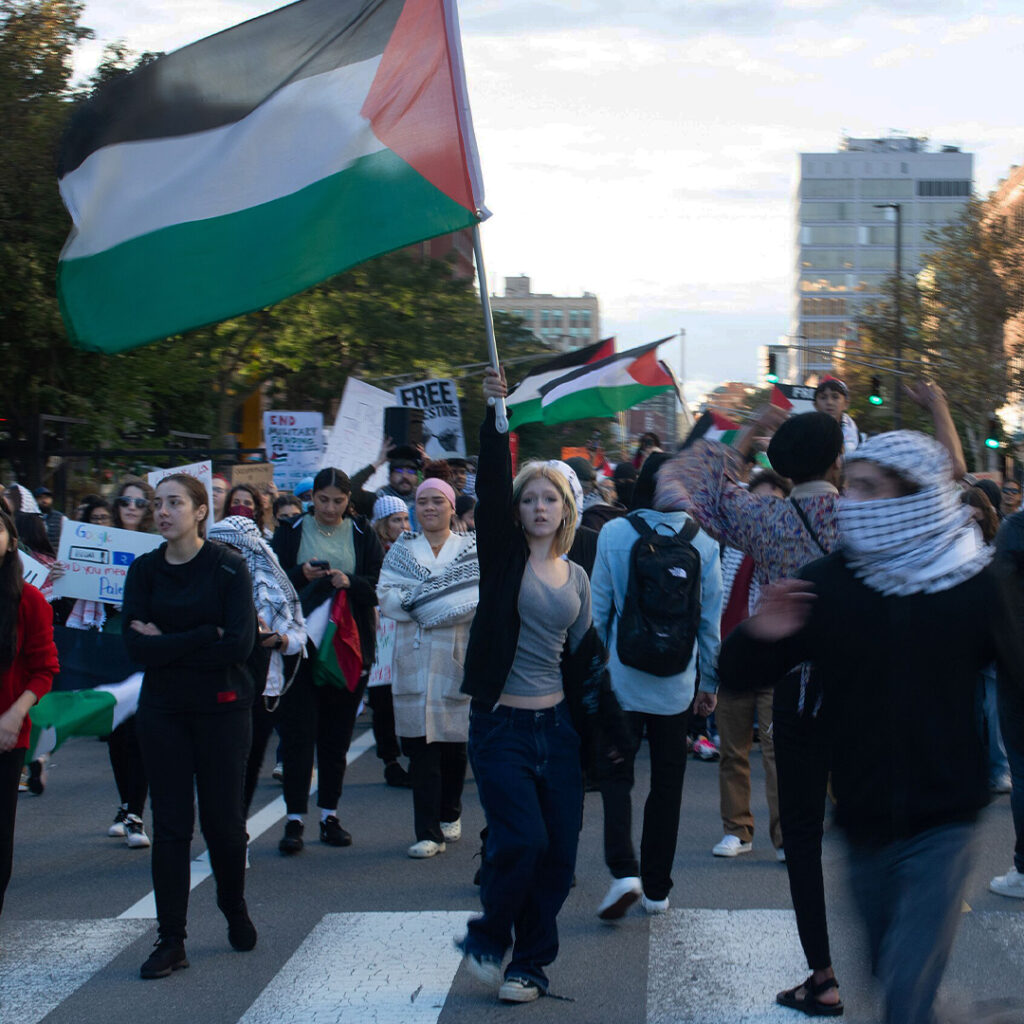
(Students protesting against the war in Cambridge, Massachusetts.)
The Unseen War
“Suddenly, a hand touched me, which made me tremble on my knees and on the palms of my hands. And he said to me, ‘O Daniel, man greatly beloved, understand the words that I speak to you, and stand upright, for I have now been sent to you.’ While he was speaking this word to me, I stood trembling. Then he said to me, ‘Do not fear, Daniel, for from the first day that you set your heart to understand, and to humble yourself before your God, your words were heard; and I have come because of your words. But the prince of the kingdom of Persia withstood me twenty-one days; and behold, Michael, one of the chief princes, came to help me, for I had been left alone there with the kings of Persia’” (Daniel 10:10-13).
In the book of Daniel, we find the great prophet and man of faith praying and fasting and seeking answers from God about the visions he had been given regarding the future. After three weeks, Daniel was visited by an angel who brought him the answer to his prayer. But the angel also revealed to Daniel a spiritual battle that had been taking place in the unseen realm.
The angel said that the answer had been sent immediately, but it had been delayed because a demonic power that he referred to as the “prince of Persia” had blocked it from being delivered. It was not until the archangel Michael, who is seen in Scripture as a great fighter for God’s people, arrived and helped win the battle that the angel with Daniel’s answer was able to come to the prophet and deliver it to him.
The Bible teaches that there are different levels of authority in the spirit realm. Paul wrote, “For we do not wrestle against flesh and blood, but against principalities, against powers, against the rulers of the darkness of this age, against spiritual hosts of wickedness in the heavenly places” (Ephesians 6:12).
One of the most important truths I have ever learned is that no battle can be won in the physical realm unless it has first been fought and won in the spiritual realm. If Daniel had not
been faithful to continue praying even though his answer was delayed, I do not believe that the spiritual battle would have been won. We are not observers in spiritual warfare…we are
on the frontlines of the battle. Our prayers matter a great deal, and they are powerful. The great hymn writer William Cowper said, “Satan trembles when he sees, the weakest saint upon his knees.”
We have a responsibility to be active participants in spiritual warfare. We must take this seriously, because these spiritual powers—both demonic and angelic—are actively at work in our world today. This is one of the vital lessons of this story from the book of Daniel. Each of us is facing battles against differing levels or layers of authority in the spiritual realm.
This is not just true on an individual basis; it is true on a national level as well. The demonic being referred to as “prince of Persia” had power and authority over one of the greatest empires of history. And this is not an isolated or special case. Other nations have demonic powers assigned to them. After talking with Daniel, the angel revealed that there was another evil spirit involved. Then he said, “Do you know why I have come to you? And now I must return to fight with the prince of Persia; and when I have gone forth, indeed the prince of Greece will come” (Daniel 10:20).
This tells us that just as Persia had a demonic power working in authority over its empire, there was a “prince of Greece” as well. And it was only after the demonic power behind the kingdom of Persia had been defeated by the archangel Michael that the Greeks, under Alexander the Great were able to defeat them on the field of battle. Previous to that time, the Greeks and Persians had fought a series of battles, but there was no decisive victory until the demonic power dynamic was first changed.
This matters a great deal to us today because Persia—modern-day Iran—is once again involved heavily in potential conflict with the nation of Israel. We do not know whether the same “prince of Persia” that was active in Daniel’s day is the same one behind the rulers of Iran today, but there is no doubt that there is a demonic power behind the throne. Satan has hated God’s Chosen People throughout all of human history, and his demonic powers have turned many governments against them. From Pharaoh in Egypt to Hitler in Germany to Iran today, the same evil forces are at work to try to destroy the Jewish people.
The reality of spiritual warfare is that Israel cannot be defended just with tanks and planes and soldiers and intelligence services or any other weapons. The Jewish state must first and most importantly be defended in prayer. That is why the Jerusalem Prayer Team exists—to gather believers from around the world together to fight and win the most important spiritual battle of our lifetime.
As Daniel did, we must be faithful to pray until the victory is won. Only when the “prince of Persia” is defeated in the heavenlies will Israel have victory over the great threat posed against her today by Iran. And that victory will not happen unless and until we do our part to win it.
U.S. Support for Israel Dropping Fast
Although overall support for Israel among the U.S. population remains at a fairly high level, it is not as great as it has been in the past. The change is being driven by the massive shift among young people. A majority of the group between 18 and 30 are willing to say they support Hamas. One poll showed 50 per cent of young people supporting giving the entire land of Israel back to the Palestinians. This is troubling for today but even more terrifying for the future. Israel desperately needs U.S. support. The U.S. desperately needs the blessing of God that comes from blessing Israel. We must do all that we can to reverse this disturbing trend before it is too late.
Pro-Palestine protests were held throughout the United States on Black Friday with activists calling to “shut it down” for Palestine. There were protests in Los Angeles; Chicago; Troy, Michigan; Saint Louis, Missouri, Estero, Florida; and many other cities.
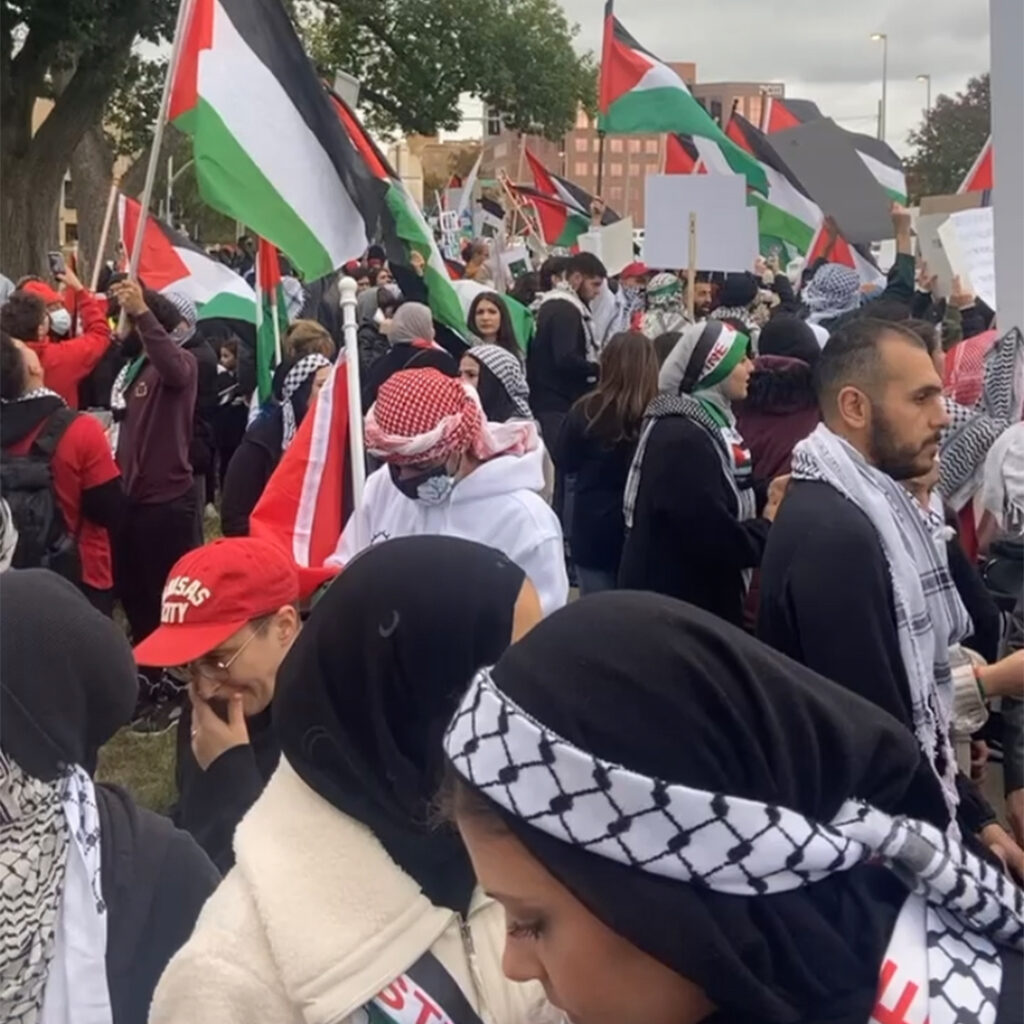
(Pro-Palestine activists rally by the road at Mill Creek Park in Kansas City, Missouri.)
Show Your Support By Giving Now
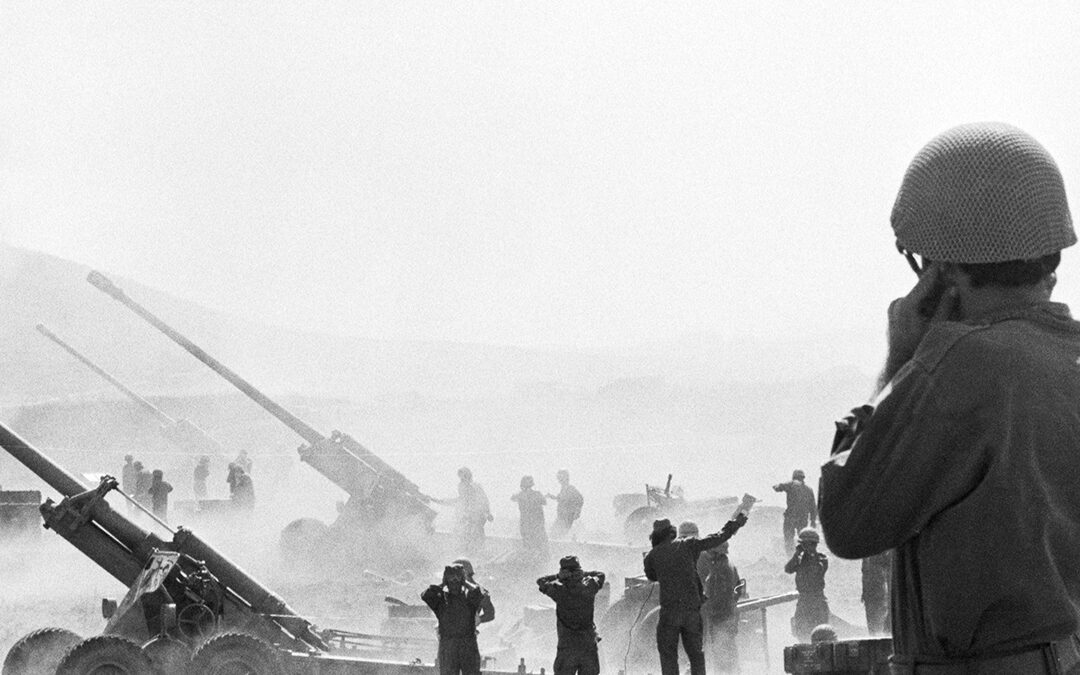
by Dr. Mike Evans | Dec 21, 2023 | Articles
THE HISTORY OF ATTEMPTS TO BRING PEACE TO ISRAEL
EDITOR’S NOTE: It is impossible to understand the current situation without first understanding what has come before. Here is the history of Israel and the many peace plans that have been proposed through the decades.
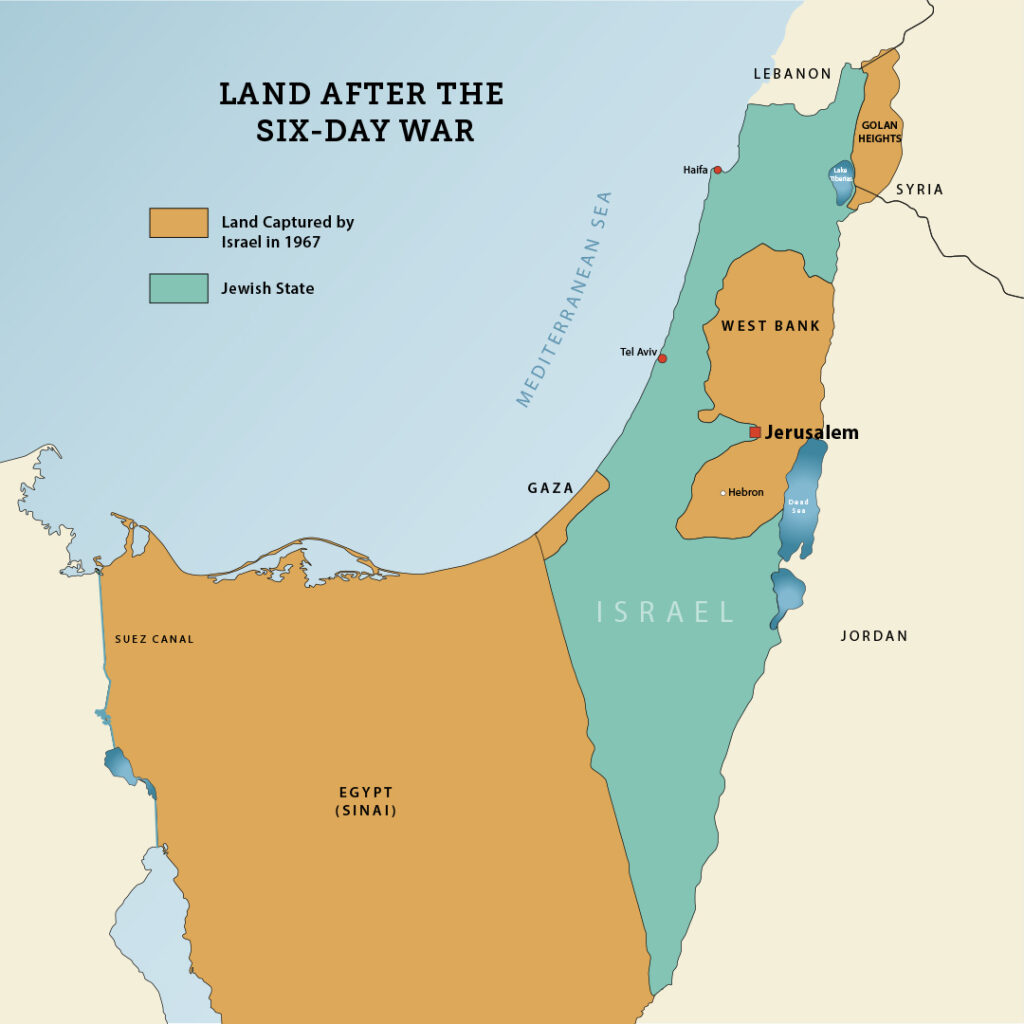
There was no real peace at the conclusion of the war—just a pause in the fighting. For the next two decades, repeated border conflicts, terrorist attacks, and the constant threat of war kept Israel on edge. Another major war would erupt in 1967—the Six-Day War. January, February, and March 1967 were rife with across-the-border bombardment by Syria against the Israelis. April 7, 1967, marked the date when Israel reached the breaking point: IDF tanks rolled into position to return fire against Syrian tanks across the border at the B’not Yaakov Bridge. Israel’s air force strafed several Syrian positions before being challenged by Soviet MiG-21 fighters. Within a matter of minutes, Israeli pilots had shot down six MiGs and chased the remaining fighters to Damascus. One of Israel’s planes was shot down.
In June 1967, determined to stop Israel from crossing the Syrian border in an attempt to end guerrilla raids on Israeli villages, President Nasser sent Egyptian troops to the Israeli border. Although urged by the kings of Saudi Arabia and Jordan to withdraw, Nasser marched inexorably toward war with Israel by requesting that the UN withdraw its emergency force of 3,400 men stationed at Gaza and Sharm el-Sheikh from the Egyptian-Israeli border.
Threatened by this hostile action, Israel took steps to defend her citizens. In a feat of unparalleled planning and execution, Israeli Air Force pilots launched Operation Focus (Mivtza Moked). It was the brainchild of Israel’s Ezer Weizman and was smoothly executed by IAF head, Major General Mordechai Hod. On the morning of June 5th, Israel launched a full-scale attack on Egypt, Jordan, and Syria. In three hours, at least 300 of Egypt’s 430 combat aircraft were destroyed, many still on the ground as the pilots did not have time to take off. Israeli ground forces started a lightning strike into Sinai and by June 8th had reached the Suez Canal. On that day, both sides accepted a UN Security Council call for a cease-fire.
By June 11th, the Arab defeat was total; Israel now held all of historic Palestine, including the Old City of Jerusalem, the West Bank, and the Gaza Strip, as well as Sinai and part of the Golan Heights of Syria. Despite the overwhelming victory, there was still no lasting peace. Just six years later, Israel would face the greatest military threat of her modern existence.
September 13, 1973, was a further catalyst for the Arab world, but it was still not alarming for Israel. On that date, Syrian fighter jets clashed with Israeli aircraft. Thirteen Syrian planes were downed, and only one Israeli Air Force jet was lost. When the Syrians began to amass troops on the Golan Heights, it was thought to be simply saber-rattling in response to the massive air-power loss. This would be a deadly miscalculation for Israel.
At 2:00 PM on October 6, 1973, Yom Kippur, the holiest day of the Jewish year, air raid sirens broke the solemnity of the afternoon. Israel was tragically caught off-guard. Most of the members of its citizen army were in synagogues, its national radio was off the air, and people were enjoying a restful day of reflection and prayer. Therefore, Israel had no immediate response to the coordinated attacks. Israeli intelligence had not seen the assault coming, and her military was ill-prepared to respond.
The Arab coalition had launched the sneak attack against Israel in the hope of finally driving the Jews into the Mediterranean. Shortly after the raucous noise of sirens penetrated the airwaves, Israeli radio broke with tradition and alerted its citizens that the nation was under siege. Egyptian forces were moving across the Suez Canal, and Syrian troops were crossing the Golan Heights. Israel’s 200,000 reserve troops would be faced with a heartstopping number of invading soldiers.
As morning broke on October 7th, Israel’s nearly 300 tanks had been reduced to about 100 in operation. Two more divisions were mobilized, one under the command of Major General Ariel Sharon, the other commanded by Major General Avraham Adan. Minister of Defense Moshe Dayan suggested a retreat to the Mitla and the Gidi passes. He believed these to be more defensible locations. Army Chief of Staff General David Elazar disagreed. He thought a site nearer the canal would provide a better spot from which to launch a counterattack. Even as he and Dayan debated the possibilities, the bloody and deadly battle raged.
As Egypt attacked across the Suez Canal, the battle raged for three days before the Egyptian army established entrenchments, which resulted in an impasse. On the northern border, Syria also launched an offensive.
The initial assault was successful but quickly lost momentum. By the third day of fighting, Israel had lost several thousand soldiers (more Israeli causalities were lost on the first day than in the entire Six-Day War), 49
planes, one-third (more than 500) of her tank force, and a good chunk of the buffer lands gained in the Six-Day War. The Israelis seemed to again be on the brink of a holocaust. On the fourth day of the war, in an act of desperation, the indomitable Prime Minister Golda Meir reportedly opened up three nuclear silos and pointed the missiles toward Egyptian and Syrian military headquarters near Cairo and Damascus. But by the morning of October 10th, after days of fierce fighting, Syria had been pushed back to the line near the Golan Heights from which they had originally launched their offensive.
In the United States at that time, Richard Nixon occupied the Oval Office. Historian Seymour Hersh wrote that earlier in his presidency, “Nixon made it clear he believed warfare was inevitable in the Middle East, a war that could spread and precipitate World War III, with the United States and the Soviet Union squaring off against each other.” The president was now staring down the barrel of that war. He authorized Henry Kissinger to put every American plane that could fly in the air to transport all available conventional arms to Israel. The amount of materiel delivered to defend Israel was more than the supplies airlifted to Berlin following
World War II; it literally turned the tide of the war, saving Israel from extermination and the world from a possible nuclear conflagration. Nixon carried President Kennedy’s agreement to militarily support Israel
to the next logical level—a full military alliance.
The IDF launched a counteroffensive within the week and drove the Syrians to within 25 miles of Damascus. Attempting to aid the Syrians, the Egyptian army went on the offensive, all to no avail. Israeli troops crossed the Suez Canal and encircled the Egyptian Third Army. When the Soviets realized what was happening, they scrambled to further assist Egypt and Syria. The Soviet threat was so real, Nixon feared direct conflict with
the USSR and elevated all military personnel worldwide to DefCon III, meaning forces should prepare for the likelihood of war. However, on October 24th, a cease-fire was finally worked out between the United States
and the USSR, adopted by all parties involved, and the Yom Kippur War had mercifully ended.
We need to raise $250,000 to continue our outreach to the families of victims and the survivors of these attacks. Will you help with your best gift today?
Show Your Support By Giving Now
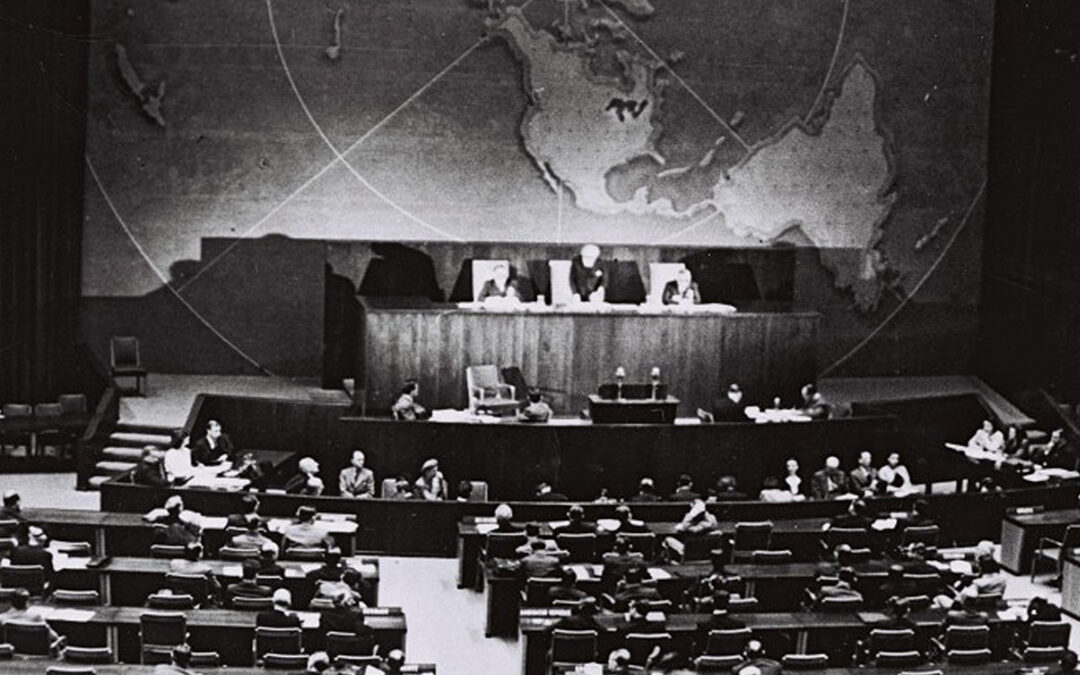
by Dr. Mike Evans | Dec 1, 2023 | Articles
THE HISTORY OF ATTEMPTS TO BRING PEACE TO ISRAEL
EDITOR’S NOTE: It is impossible to understand the current situation without first understanding what has come before. Here is the history of Israel and the many peace plans that have been proposed through the decades.
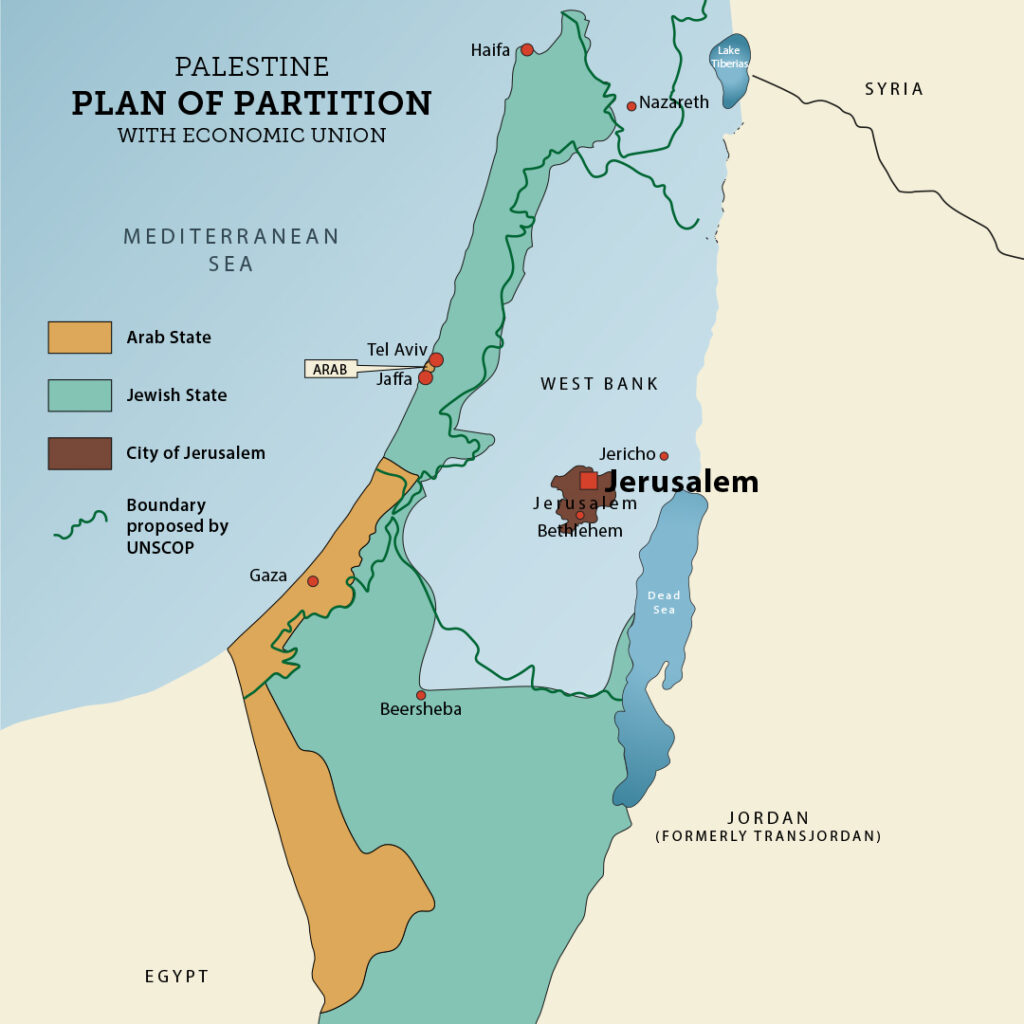
At the end of World War II, with all of its horrors of the Holocaust, devastated Jewish survivors in Europe longed for a return to their homeland. Their dreams were to be delayed when Great Britain remained in control of Palestine, as it had since the defeat of the Turks in World War I, by mandate of the United Nations, and with a growing dilemma: how to walk the tightrope between world opinion and the Arab nations.
After the shock and revulsion of the Holocaust, much of the world increasingly demanded that the Jews be allowed to return to their homeland in Palestine—arguably thought to be a place of safety for them. Arabs in the region were adamantly opposed to the move. Greatly frustrated by the situation, the British announced in February 1947 that control of Palestine would be ceded to the United Nations, even then a hotbed of anti-Semitism.
Journalist Eric R. Mandel tellingly wrote of the cultural relativism that still today grips the UN:
“Non-democratic states overwhelmingly control the UN. They often mouth the words of moderation, but defend nations that give sanctuary to terrorists. How else can one explain that some of the most odious nations on earth are elected to the UN Human Rights Council? In fact, Israel’s judge and jury at the UN are often nations that enable terrorism and anti-Semitism. To accurately judge the United Nations, we need a definition. If Israel is treated and judged completely differently than other nations and held to a standard not applied to any other member nation, then that should be considered anti-Semitism.”
In November 1947, the UN offered a plan for partition that would divide the region into an Arab state and a Jewish state, calling for British troops to leave Palestine by August 1948. The Jews welcomed the proposal; the Arabs scorned it. Some British leaders felt it would be impossible for a Jewish state to flourish in the face of such hostility from the Arabs.
In the interim, Jewish leaders moved forward with plans for statehood. A provisional government was established under David Ben-Gurion in March 1948. Two months later, on May 14, as Egyptian fighter-bombers roared overhead and British troops readied for departure, Ben-Gurion and his political partners gathered at the museum in Tel Aviv. At 16:00 [4:00 PM], Ben-Gurion opened the ceremony by banging his gavel on the table, prompting a spontaneous rendition of Hatikvah, soon to be Israel’s national anthem, from the 250 guests.
For 2,000 years, Israel had been a nation in exile; overnight, it had astonishingly become an autonomous state on the world stage. But, the following day, Israel was attacked by the five Arab nations that ring her borders: Egypt, Syria, Transjordan, Lebanon, and Iraq. There was no peace in the beginning, despite the world’s efforts to bring Israel to life in a negotiated manner.
When the nation of Israel was reborn on May 14, 1948, it was evidence of God’s fidelity to His Word and a clear statement that there is, indeed, hope and redemption available for this world. He said so in His Word and cannot lie:
God is not a man, so he does not lie. He is not human, so he does not change his mind. Has he ever spoken and failed to act? Has he ever promised and not carried it through?
—Numbers 23:19 (NLT)
God promised the Land to the children of Israel as their birthright. Although they have been dispersed throughout the nations as punishment for turning from God, the birthright, the covenant, has never been revoked. The Land does, indeed, belong to the Jewish people. But the enemies of Israel today, just as they did 71 years ago, refuse to accept that truth.
Ben-Gurion’s announcement of Israel’s rebirth was the initial step in a war that would last one year, three months, and ten days; it would test Israel’s very resolve and preparedness. At the outset of the confrontation, it was obvious that Israeli forces were greatly outnumbered. One army, alone— the Egyptians— boasted 40,000 ground troops armed with approximately 135 armored fighting vehicles, heavy artillery, and 60 planes in its arsenal—including bombers and single-seat fighter planes. Forces in Egypt and Jordan had been trained and led by British army officers. The Israelis were faced with those daunting figures yet marched forward determined and unbowed.
Despite the U.S. arms embargo imposed on both sides of the conflict, the Arab League had little difficulty obtaining arms from the British. It was not even a well-kept secret that Royal Air Force planes took to the skies alongside Egyptian squadrons. Four RAF planes were shot down by Israeli planes on January 7, 1949.
Shortsighted Arab negotiators opted for aggression rather than compromise. By the war’s end, the Arabs held even less territory than outlined in the UN partition plan. The Jews, backs to the wall, outgunned and outmanned, won their hard-fought independence at a terrible price. According to author and historian Howard Sachar: “Many of its most productive [agricultural] fields lay gutted and mined. Its citrus groves, for decades the basis of the Yishuv’s [Jewish community’s] economy, were largely destroyed.” To protect their land and its inhabitants cost the Israelis over $500 million and approximately one percent of its population at that time— 6,373 men, women, and children. How many lives might have been saved had the United States and its Western Allies sufficiently armed the Jews so that they were able to protect their land and people?
During the first months of 1949, direct negotiations were conducted under UN auspices between Israel and each of the invading countries (except Iraq, which refused to negotiate with Israel), resulting in armistice agreements that reflected the situation at the end of the fighting. Accordingly, the Coastal Plain, Galilee, and the entire Negev were within Israel’s sovereignty; Judea and Samaria (the West Bank) came under Jordanian rule; the Gaza Strip came under Egyptian administration, and the city of Jerusalem was divided, with Jordan controlling the eastern part, including the Old City, and Israel the western sector. Once again, the Jews were denied access to any part of the Temple Mount.
We need to raise $250,000 to continue our outreach to the families of victims and the survivors of these attacks. Will you help with your best gift today?
Show Your Support By Giving Now
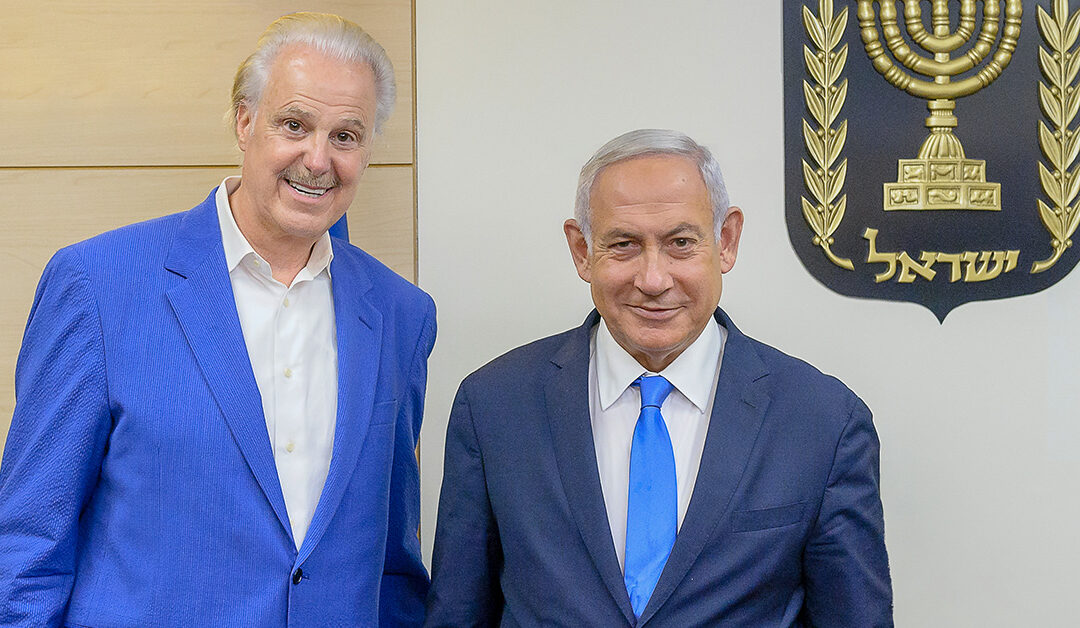
by Dr. Mike Evans | Nov 28, 2023 | Articles
EDITOR’S NOTE: Recently Dr. Evans hosted a historic Zoom call with Prime Minister Benjamin Netanyahu and hundreds of evangelical leaders in America. During that call, Dr. Evans asked his friend of more than 40 years what the most important thing we can do to support Israel is. The answer came immediately—and it is a challenge that you need to hear. So we’re sharing excerpts from that conversation with you today.
ME: Well, this is a very special meeting with our evangelical friends, especially in America. The year was 1980. I met with Menachim Begin. And he said, “Why did you come?” And I said, “Why did I come?” He said it three times, and I didn’t answer. Finally he said, “Do you know why you came?” I said, “No, Mr. Prime Minister.” “Do you know anything?” he asked and I said, “God sent me.” He said, “Mike, when God tells you why He sent you, come back and tell me.” This was the 30th of June.
On the 5th of July, I came back and I went to him and I said, “I know why I came. God told me to build a bridge.” He laughed and said, “You’re going to build the Brooklyn Bridge?” said, “No, a bridge of love between Bible-believing evangelical Christians and the state of Israel.”
He reached out his hand and said, “Mike, I want to build that bridge with you together. And then I said, “There’s one more thing, Mr. Prime Minister. I met the Prime Minister yesterday.” He said, “No you’re mistaken. You met me on the 30th of June.” I said, “His name is Benjamin Netanyahu. Would you give him a job in the government?” He looked at Reuben Hecht and he said, “Reuben, offer him a position under Moshe Aaron.”
There’s no world leader except you, Mr. Prime Minister, who unites the evangelicals of the world. They dearly love you. Can you tell us several things? Number one, how important is the evangelical support of the state of Israel?
BN: Well, first of all, Mike, I learned from you that you’re responsible for all this mess that I’m in. So I’m holding you accountable. [laughter] I thank you for your support over the years and the support of the many friends in your audience. And the answer is that they’re great friends. I’m a great champion of devout Christians because devout Christians are the greatest champion of the state of Israel.
When you look at it, it was first British Christian Zionism and then American Christian Zionism in the 19th century that preceded Jewish Zionism and had a profound impact on the founding of the Jewish state and creating the international support that led to the Balfour Declaration and other things that enabled the rise of the idea of the Jewish state.
And I think that nothing has changed. That is still the most powerful engine of support that we have and one that is based on our common foundations, the Judeo-Christian tradition that is so important and that gives meaning to our lives, gives purpose and gives strength. So I thank you and I thank your audience, not only those who are watching this, but everywhere around the world. Thank you, friends.
ME: Tell me, tell them a little bit about the Netanyahu family. You don’t talk too much about it because you’re very busy, but your grandfather, your father, your brother had a great impact upon your life.
BN: Well, they did indeed. My grandfather was a rabbi and a great orator and a great Zionist leader. He was tremendously impressed and inspired by Theodor Herzl, the father of modern Zionism, the modern Moses. And he became a great disciple of his and went around the world, including the United States, where he gave some 600 lectures in support of founding of the Jewish state.
My father was a great historian who came to the United States during World War II to agitate for a Jewish state. He believed that he had to recruit not only the leaders of America, and he did. He met with many of them, including Eisenhower, as a young man, without any organization.
He was able to impress upon them the importance of founding of a Jewish state because of the common interest that we would have. He said that we would be the strongest power in the Middle East. Eisenhower looked at him and said, “How is that possible? You’re only 600,000 people. You’ll be swept away by the Arabs.”
And he said, “General, you’ve just seen in two world wars how we Jews fight for other nations. Can you imagine how powerful will be when we fight for our own nation?” And Eisenhower bought him before the general staff twice because he was so impressed with his spirit. But my father didn’t only appeal to Jewish interests. He said that we would help America block the Soviet domination of the Middle East. And it all turned
out to be true. But he also appealed to the American people. He believed in the power of America’s people. And he made a great effort to recruit American public opinion support for the state of Israel.
So I think I got something from both of them, certainly inspired by both of them. My older brother, Jonathan, Yoni, was a military commander. He was really a poet, a philosopher, and a warrior. And he fell leading the rescue mission, the famed rescue mission in Uganda on July 4, 1976, the bicentennial of America. There is a lot of…I suppose there are a lot of connecting points that I have not only to my family, but to to the United States of America, who I always believed was the beacon of freedom in modern times and in history.
ME: You’ve built alliances with virtually the majority of the nations of the world, at least the sane nations of the world. How did this transpire?
BN: Well, there’s a rule of politics and that is that strength attracts and weakness repels. If you’re strong, people will come to you. We had to be strong. To be strong, we had to be strong, not only in our faith, in our resolve, but we also had to be strong in the material capacities that make nations strong. The most important thing that you need for strength is a strong military, but a strong military requires a strong economy. I devoted a good deal of my time in office, 16 years as Prime Minister of Israel now, to convert Israel from a semi-socialist economy to a free market capitalist economy. And once we did that, we had all the genius that is embedded in our people, the technological and scientific powers, meet with the forces of the market, and that created this great transformation of Israel into the start-up nation, into one of the preeminent powerhouses of technology in today’s world.
So the combination of economic power, economic and technological power, and military and intelligence power, combined to give us diplomatic power, because now many countries are coming to us to benefit from our prowess in technology and in defense, fighting terror, for example. I have to say that the greatest and the most impressive change has been the response of Arab nations.
We’ve been able to make four historic peace treaties, the Abraham Accords, which we worked out with President Trump and his administration, because Arab countries were coming to us trying to benefit their own peoples, their own security, and their own prosperity. We did it essentially by making Israel strong. If you’re strong, people will come to you. If you’re strong, people will make peace with you.
Nobody makes peace with the weak. You know, I quietly met with a lot of these Muslim leaders during the Trump administration like the Crown Prince of Saudi Arabia. It took a while to persuade people even in the previous administration that we don’t have to go through the Palestinians get their consent to try to get peace with the broader Arab world.
That’s what people were telling us for 25 years. They said, “You can’t go beyond the peace that we made with Egypt and with Jordan. You’re not going to get to the broader Arab world if you don’t make peace first with the Palestinians.” The problem with that is that the Palestinians don’t want peace. They don’t want a peace with Israel. They want a peace without Israel. They don’t even want a state next to Israel. They want a state instead of Israel. So if we wait for them, we’ll wait another quarter of a century. We’re not going to get anywhere. And so we decided to go around the Palestinians and make peace directly with the Arab capitals.
And by the way, the Palestinians are about 2 % of the Arab world, but that 2% has been the tail wagging the dog. Once they realize that their hope, their fantasy of destroying Israel is not going to happen, because the rest of the Arab world gradually will make peace with Israel, then they might come around to accepting a Jewish state. And I think that peace doesn’t work inside out the Palestinians and then the Arab world. I think it works outside in the Arab world and then possibly the Palestinians.
But I want to tell you that we’re working now just as we did with the Trump administration with the current administration, the Biden administration to see if we can expand the peace to Saudi Arabia as well. I can’t guarantee that we will succeed, but we’re giving it a good try and I hope we succeed. It’ll be good for everyone.
ME: I want to ask you about judicial reform. In the United States, the Supreme Court justices cannot vote on each other, and the Attorney General is not over the president and the legislature. Would you please explain this, your judicial reforms, in light of the misinformation we’re getting in the media?
BN: Well this raises exactly the issues that are of concern to us. I mean, democracy is based on the idea that you balance the will of the majority with the rights of the minority, really the rights of individuals. How do you balance that? You balance that by having checks and balances between the three arms of government. You have a balance between the legislature, the executive, and the judiciary. In Israel’s first 50 years, that balance was pretty much maintained.
But it was slowly eroded by the most activist judiciary on the planet. And they aggregated for themselves more and more powers of the executive, of the government, and the legislature, the Knesset. What we’re trying to do is bring it back in line, at least somewhat. And of course, that has received tremendous hate and misrepresentation Israel was a democracy, will be a democracy.
I think it’ll be a better and stronger democracy, and certainly one that has checks and balances and not only checks of the judiciary and no balance through the other branches of governments. I think it’ll be a stronger democracy when this is all over. Thank you. On the question of security and tourism, people hear misinformation about protests and all that. They wonder, is it safe to go to Israel? My question is, is going to Israel safer than going to Miami or Chicago? Well, I heard two friends talking about it, two American friends. And one of them said, “Is it safe to go to Israel?” And the other one said, “Well, you know, once you get past JFK airport, it’s fine!”
There’s lawlessness, there’s terror, there are problems. That’s true of every one of the countries in the world, even in the democracies. But I can assure it’s safe and you’ll be, as you know, the people who are watching you and those who’ve been to Israel know that Israel welcomes tourists. But our Christian friends, when they come here, they’re really embraced. I mean, you’ll find this across, there’s some, very few, a small minority who don’t share that view. We’re taking very strong action against them because you are the greatest friends that the Jewish state has. I never forget it. And the vast majority of Israelis strongly agree with me. So please come, you’ll be safe and you’ll be welcome.
ME: Mr. Prime Minister, you are the voice of moral clarity. I know your heroes are Churchill and Reagan. You are the one who stood up at the United Nations and a joint session of Congress against Iran. There’s a lot of concern we have right now because we’re seeing Iranian drones in Ukraine and we’re seeing the possibility of the Russians building a greater alliance with Iran that could potentially create a catastrophic nuclear arms race in the Gulf states. Can you update us on this Iran dilemma?
BN: Well, first of all, I think it’s very important to stop Iran from getting nuclear weapons. Our efforts over the years have slowed them down. They thought they’d be where they are today 10 years ago. So they’re 10 years behind. We slowed them down, but we didn’t stop them. The only way you can stop them, the only way, is to have a credible military threat. And I think that if they don’t see that threat, then they’ll continue, and then you’ll have to exercise the means to physically stop them.
That’s what happened with our action against Saddam Hussein’s nuclear reactor in Iraq. We stopped it militarily. That’s what happened with Syria’s attempt to build a nuclear plant, a military nuclear program. We stopped it militarily. That’s what happened with Gaddafi’s Libya. It was stopped by the United States militarily, not by action, but by the threat. It wasn’t stopped in North Korea, because there was no threat through successive administrations. So now they have the weapons to threaten half of Asia, and they’re trying to build ICBMs, Intercontinental Ballistic Missiles, to reach the United States.
Iran is like 30 North Koreas. Iran calls America the Great Satan. We’re the little Satan. I always tell my European friends, don’t be offended, but you’re a middle-sized Satan. But they’re building long -range rockets and missiles to reach them to nuclear tip. If Iran is not stopped, then Iran will be able to threaten the Great Satan, any part of it, with nuclear weapons, with intercontinental ballistic missiles tipped with atomic bombs.
So we have a common interest to stop Iran’s nuclear program. And again, the one guarantor is that you have a credible military threat against them. And the second is something that has emerged over the last few years, and that is the Iranian people. The Iranian people are rising up in unbelievably courageous protests, where they’re mowed down often. People don’t know. I speak occasionally to Iranian audiences and we can monitor how many people listen to these broadcasts. We often have 20 million Iranians listening and there are 90 million Iranians. Can you imagine the thirst for freedom there?
So I would say, not only have a credible military threat against Iran, but also support the Iranian people, support the broadcasts that are going there, support the free media that is going there. That is perhaps as important as the first thing that I mentioned. As far as Iran and Russia, that’s very disturbing to us. It’s disturbing, one, that they’re selling these killer drones to Russia, and that’s killing obviously a lot of innocent people. But it’s also concerning to us that the other way could also be working, that there would be things that Russia is giving Iran militarily, or in terms of intelligence. And we’re monitoring that day by day. Both things are of great concern to us.
ME: My last question has to do with Friends of Zion Heritage Center. You were actually the inspiration for it. It’s now the largest pro -Israel social network platform in the world. Can you tell us what is the most important thing that the evangelicals can do now and focus on for the state of Israel?
BN: Right now, the most important thing that you can do, in my mind, is to educate your younger generation, to infuse them with your faith, with your knowledge, with your heritage, with our common heritage, to tell them how important it is for history, for humanity, and for our Judeo-Christian tradition, the revival, the return of the Jews to the Holy Land and the reconstruction of an independent Jewish state in the Jewish homeland. I think that’s important. If I had to say, what is the most important thing that you could do? Pass the torch.
ME: Mr. Prime Minister, it has been an extremely great honor. You and I have been cherished friends for 43 years, but you have tens of millions of cherished friends here in America and throughout the world. God bless you, sir.
BN: God bless you. Thank you. Thank you.
View the interview: https://youtu.be/G5SoR0rzjw0
We need to raise $250,000 to continue our outreach to the families of victims and the survivors of these attacks. Will you help with your best gift today?
Show Your Support By Giving Now

![]() , Tzva HaHagana LeYisra’el, which means “army for the defense of Israel,” on 26 May 1948. The Ground Forces, Air Force and Navy branches currently have about 170,000 active duty troops. In addition, there are more than 450,000 reservists, many of whom have been activated during the current war because of the scale of the operation required.
, Tzva HaHagana LeYisra’el, which means “army for the defense of Israel,” on 26 May 1948. The Ground Forces, Air Force and Navy branches currently have about 170,000 active duty troops. In addition, there are more than 450,000 reservists, many of whom have been activated during the current war because of the scale of the operation required.

















